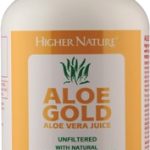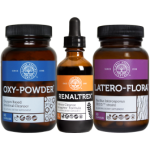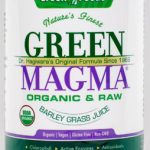When it comes to the excretory system, many of us tend to think of constituent parts like the anus, the large intestine and the liver; all of them massively important in the processing and excretion of waste products from the food and fluids we consume. But too easy to forget, it seems, are the kidneys, the two small, fist-like organs that sit either side of the spine within the ribcage and, tasked with filtering the blood to remove waste from the body in the form of urine, are an undeniably essential part of the intestinal tract and the excretory process.
How could we overlook them? Sadly, too many of us arguably do, as we don’t concern ourselves with looking after them – and, thus, our health – as well as we might. Here then are 10 ways to put that right…
- Keep an eye on your blood pressure
What’s less known about high blood pressure, unlike with heart attacks or strokes, is that of all causes it’s actually the most common of kidney damage. If your blood pressure’s between 120/80 (the normal level) and 139/89 you should generally look to make both dietary and lifestyle changes, as it’s liable to be too high; however, there are factors to consider alongside this that a medical professional would doubtless discuss with you. High blood pressure’s most likely to damage the liver when it occurs in conjunction with high cholesterol, diabetes and cardiovascular diseases.
- Keep your blood sugar levels under control
If you have difficulty controlling your blood sugar levels, it could be a sign you have or might develop diabetes – and diabetes can lead to kidney damage; as many as half of all diabetes sufferers experience damaged kidneys. If it’s detected early – and there’s a good chance it will be, as detection of diabetes itself is likely to result in all sorts of medical tests – kidney damage can certainly be reduced. Seeking the help of medical experts to properly manage your blood sugar levels, should you need to do so, is undoubtedly the best course of action; indeed, with diabetes it’s absolutely critical.
- Keep fit and stay and active
Generally speaking, human beings aren’t designed to lead sedentary lifestyles; therefore, at practically every stage of life it’s important for us to remain active via natural or recreational physical exercise. Just like with almost every aspect of the body, exercise benefits the kidneys as it’s excellent for reducing blood pressure and so diminishing the risk of chronic kidney disease (CKD).
- Adopt a healthy diet
As noted already, diabetes and heart problems are among the many conditions associated with kidney damage and, potentially, CKD – and you can take a big, healthy step towards showing them the door by changing your dietary habits. That means reducing your salt intake, ditching the processed foods, sugar-rich snacks and junk food and opting for more balanced sensible offerings, such as organic, fresh fruits and vegetables. In particular, though, diet-wise, the following foods are all excellent kidney health tips:
- Cherries – crammed full of nutrients, so incredibly healthy in any case (Vitamins B6, C and K, folate and magnesium), it’s the citrate they contain, in particular, that’s so beneficial for the kidneys, as this decreases uric acid levels in the bloodstream1, large levels of which can lead to gout, arthritis and the development of kidney stones2
- Cranberries – often recommended to help fend off urinary tract infections (UTIs), consumption of pure cranberry juice, when diluted in water, appears to reduce the levels of oxalate and phosphate in urine, which also decreases the risk of forming kidney stones3
- Java tea – actually the herb Orthosiphon stamineus, which has played a role in folk medicine for many centuries, not least to treat kidney disorders; which recent research confirms it’s effective at doing, as well as supporting the liver and overall gastrointestinal tract and helping to stabilise blood pressure and blood sugar and provide antioxidant protection4
- Onions and garlic – specifically, it’s the antioxidant flavonoid named quercetin that’s so beneficial for the kidneys in these root vegetables, particularly for smokers5.
- Keep hydrated
It’s very well established, of course, that drinking lots of water is one of the healthiest things you can do; when it comes to the kidneys, it helps to ensure these organs can clear out sodium, urea and other toxins, which means less damage for the kidneys, a reduced risk of developing CKD and better health for the overall body.
It’s worth bearing in mind, though, that one shouldn’t seek to excessively take on fluids for this reason – perhaps around two litres daily is about right for what the kidneys and the wider body requires; that said, exactly how much a body needs depends on various factors, such as pre-existing health conditions, climate, exercise levels and gender-specific dynamics like pregnancy and breast-feeding.
- Cut down your alcohol intake
Everybody knows drinking excessively is bad for you; it puts particular stress on the liver, the organ charged with detoxification in the body. That said, owing to the high level of toxins drinking to excess can introduce to the gastrointestinal system, it can toxify much of the system, which can help cause blockages and ill-health throughout and, thus, has a knock-on effect on the kidneys. It can also slow the rate of blood to the kidneys.
- Stop smoking
Quite obviously, quitting the cigarettes, tobacco and nicotine would be a very good move for your all-round health, but especially for the kidneys it’s very important because, as with alcohol, smoking slows blood flow to these organs. It’s more than worth noting too that smoking increases the risk of developing kidney cancer by a whopping 50%.
- Be mindful with pharmaceutical drugs
You should be careful of taking certain over-the-counter or prescription medication regularly (such as the painkiller Ibuprofen and other non-steroidal anti-inflammatories, or NSAIs) because, unless consumed with restraint, they’re widely accepted as causing kidney damage. Taking such drugs in times of emergencies or infrequently probably won’t pose your kidneys a risk if yours are relatively healthy, but doing so often – due to chronic pain issues like arthritis – could indeed be bad news for your kidneys.
- Get checked out if you’re ‘high risk’
The term ‘high risk’ here isn’t intended to sound alarming, merely to suggest that should you have any pre-existing medical issues like diabetes, hypertension, obesity or you’re aware kidney disease runs in your family, then you should have your kidneys tested by medical professionals as you may fall into a ‘high risk’ category of potentially developing kidney-related conditions, such as CKD.
- Cleanse your kidneys
Finally, there are few things more helpful you can do for your kidneys than to give them a thorough and regular cleanse. Why? Because it aids them in their natural efforts of removing all the toxins and harmful micro-organisms that like to take root but don’t belong in them, ensuring these little organs function as effectively as possible. To that end, do check out the ‘Kidney Health’ section of The Finchley Clinic website, where you’ll find many naturally-derived products to aid your kidney-supporting efforts, including these kidney cleanse supplements:
Kidney Health Kit – a full cleansing kit for the kidneys; it gives them a boost with Renaltrex and supports and drives toxin removal thanks to Oxy-Powder and Latero-Flora.
ORËÁ – a whole-body, natural toxin remover (thus ideal for organs, glands, cellular tissue and the blood); it’s great at eliminating environmental toxins, such as arsenic, biotoxins, lead, mercury and solvents.
Green Magma (Barley Grass Powder) – a certified organic extract of young Green Barley juice that may well aid detoxification, improve digestion and increase energy.
References:
- Zhang Y., Neogi T., Chen C., Chaisson C., Hunter D. J. and Choi H. K. ‘Cherry consumption and decreased risk of recurrent gout attacks’. Arthritis Rheum. Dec 2012; 64 (12): 4004-11.
- Saito J., Matsuzawa Y., Ito H., Omura M., Ito Y., Yoshimura K., Yajima Y., Kino T. and Nishikawa T. ‘The alkalizer citrate reduces serum uric acid levels and improves renal function in hyperuricemic patients treated with the xanthine oxidase inhibitor allopurinol’. Endocr Res. 2010; 35 (4): 145-54.
- McHarg T., Rodgers A. and Charlton K. ‘Influence of cranberry juice on the urinary risk factors for calcium oxalate kidney stone formation’. BJU Int. Nov 2003; 92 (7): 765-8.
- Ameer O. Z., Salman I. M., Asmawi M. Z., Ibraheem Z. O. and Yam M. F. ‘Orthosiphon stamineus: traditional uses, phytochemistry, pharmacology, and toxicology’. J Med Food. Aug 2012; 15 (8): 678-90.
- Wilson R. T., Wang J., Chinchilli V., Richie J. P., Virtamo J., Moore L.E. and Albanes D. ‘Fish, vitamin D, and flavonoids in relation to renal cell cancer among smokers’. Am J Epidemiol. Sep 2009; 170 (6): 717-29.







